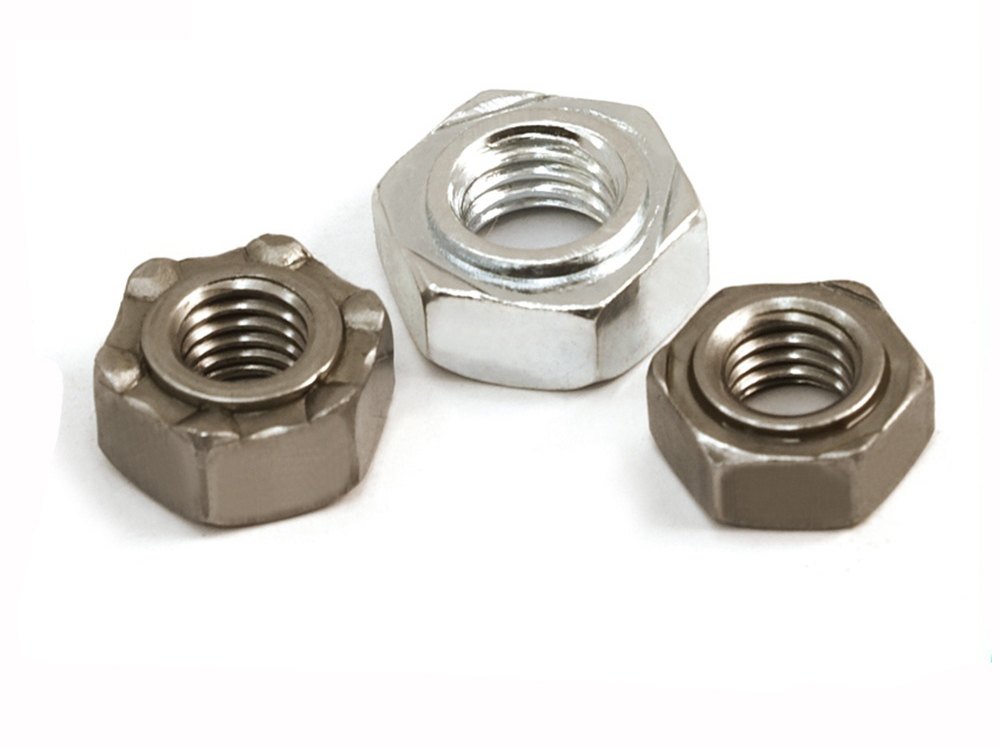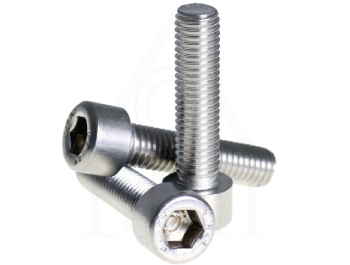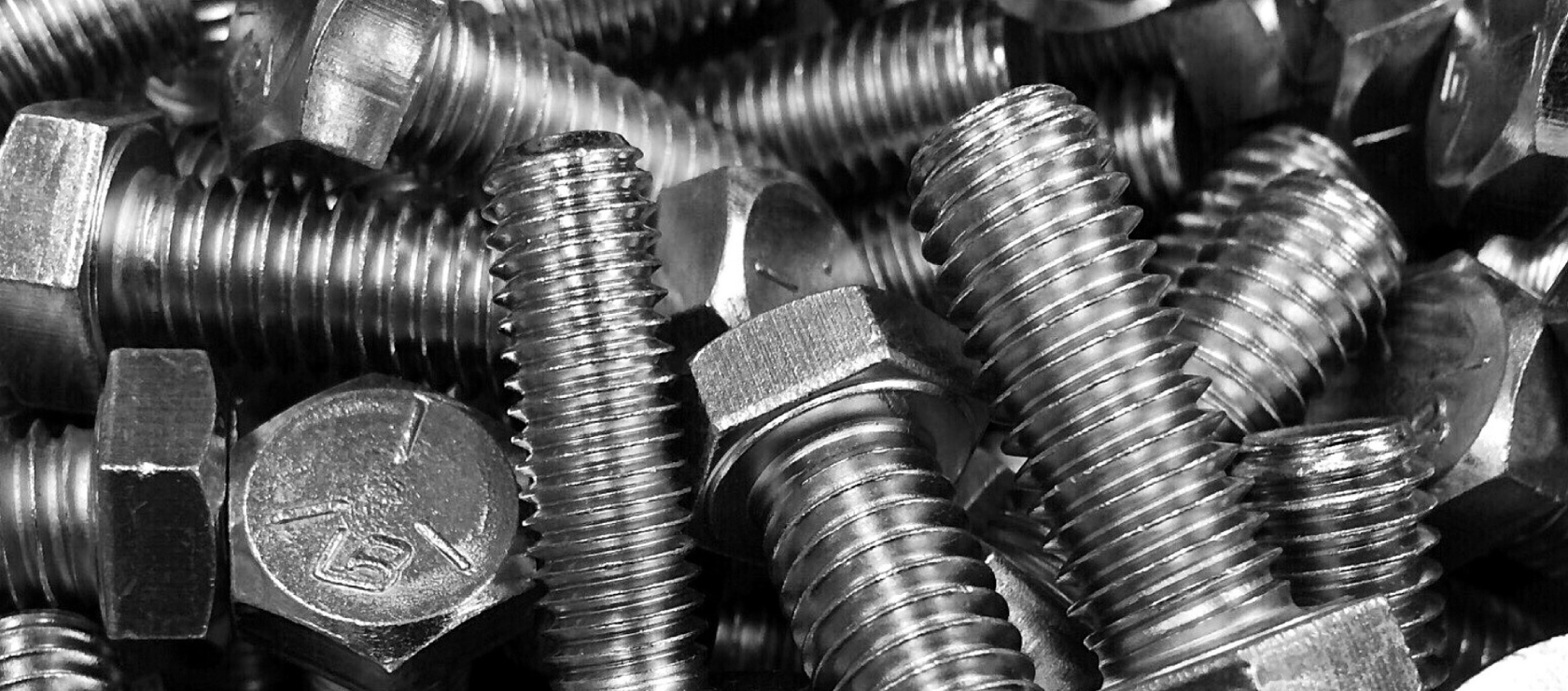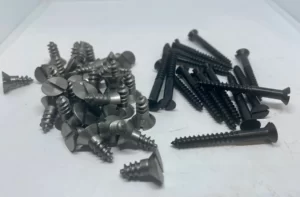What Is the Raw Material for Nut Bolt Manufacturing?
Nuts and bolts, those seemingly simple yet indispensable components in the world of fasteners, owe their strength and reliability to carefully chosen materials. The process of manufacturing these small but crucial pieces involves selecting materials that can withstand varying degrees of stress, corrosion, and environmental conditions. In this blog, we will delve into the raw materials that form the foundation of nut and bolt manufacturing, examining the characteristics that make them ideal for specific applications.
Common Raw Materials for Nut and Bolt Manufacturing:
1. Carbon Steel:
- Description: Carbon steel is one of the most widely used materials in nut and bolt manufacturing. It is an alloy of iron and carbon, often containing small amounts of other elements like manganese, sulfur, phosphorus, or silicon.
- Characteristics: Carbon steel provides a good balance of strength, ductility, and affordability. It can be easily heat-treated to achieve desired hardness levels, making it suitable for a wide range of applications.
- Applications: Carbon steel nuts and bolts are commonly used in construction, automotive, and general-purpose fastening applications.
2. Alloy Steel:
- Description: Alloy steel is a type of steel that contains additional alloying elements, such as chromium, molybdenum, or nickel, to enhance its mechanical properties.
- Characteristics: Alloy steel nuts and bolts offer improved strength, hardness, and resistance to wear and corrosion compared to carbon steel. The specific alloying elements determine the material’s performance in various conditions.
- Applications: Alloy steel fasteners are employed in critical applications where higher strength and durability are required, such as in heavy machinery and high-stress environments.
3. Stainless Steel:
- Description: Stainless steel is an iron alloy with a minimum of 10.5% chromium content. It is known for its corrosion resistance and durability.
- Characteristics: Stainless steel nuts and bolts exhibit excellent resistance to corrosion, making them ideal for applications in humid or corrosive environments. The addition of alloying elements like nickel enhances their mechanical properties.
- Applications: Stainless steel fasteners are widely used in marine, food processing, and chemical industries, as well as in situations where aesthetic appeal and corrosion resistance are crucial.
4. Brass and Bronze:
- Description: Brass is an alloy of copper and zinc, while bronze is an alloy of copper and tin. Both materials are non-ferrous.
- Characteristics: Brass and bronze nuts and bolts are corrosion-resistant and offer good electrical conductivity. They are valued for their aesthetic appeal and are often used in decorative or architectural applications.
- Applications: Brass and bronze fasteners find use in electrical components, decorative hardware, and situations where non-corrosive properties are essential.
Manufacturing Processes:
- The raw materials undergo various manufacturing processes, including forging, machining, heat treatment, and coating, to shape them into the final nut and bolt products. The chosen process depends on the material type, the desired properties, and the specific requirements of the application.



Conclusion
Understanding the raw materials used in nut and bolt manufacturing provides insight into the diverse properties that make these fasteners suitable for a wide range of applications. Whether it’s the strength of carbon and alloy steels, the corrosion resistance of stainless steel, or the aesthetic appeal of brass and bronze, each material has its unique characteristics. The careful selection of these materials and the precision in manufacturing processes ensure that nuts and bolts can effectively and reliably secure components in structures, machinery, and various industrial applications, contributing to the stability and functionality of our built environment.
Bhansali Metalloys Inc is one of the leading Manufacturer, Exporters, and Suppliers of High Quality High Tensile Nuts Fasteners all over in India. We are Manufacturer, Supplier and Dealer of various types of Fasteners such as Bolts, Nuts, Threaded Rods, Screws, Washers and many more. We are High Tensile Nuts Fasteners Manufacturer in India. These High Tensile Nuts Fasteners are available in different grades and materials. We are High Tensile Nuts Fasteners Manufacturer, Supplier, Dealer, and Exporter in India. We are High Tensile Nuts Fasteners Supplier in India. Contact Us +919152160158 or email to info@bhansalimetalloysinc.com for High Tensile Nuts Fasteners price list.
For our full list of products that we offer check out our website here. Be sure to join the conversation in our Facebook, Instagram, Twitter, LinkedIn Group.
Each Stainless Steel High Tensile Nuts Fasteners is otherwise designed based on the characteristics of the applying and additionally the pressure. Consequently, different industries use different High Tensile Nuts Fasteners. We also produce customized High Tensile Nuts Fasteners Products at our factory as per our client’s requirements. For any types of High Tensile Nuts Fasteners Price List Call on +91 9152160158 or drop an Email to info@bhansalimetalloysinc.com | exportbmi32@gmail.com
We Export Across the Globe
Exports in Asia Afghanistan, Armenia, Azerbaijan, Bangladesh, Bhutan, Brunei Darussalam, Cambodia, China, Georgia, Hong Kong, India, Indonesia, Japan, Kazakhstan, South Korea, Kyrgyzstan, Laos, Macao, Malaysia, Maldives, Mongolia, Myanmar (ex-Burma), Nepal, Pakistan, Phillipines, Singapore, Sri Lanka (ex-Ceilan), Taiwan, Tajikistan, Thailand, Timor Leste (West), Turkmenistan, Uzbekistan, Vietnam.
Export to Africa Burundi, Comoros, Djibouti, Eritrea, Ethiopia, Kenya, Madagascar, Malawi, Mauritius, Mayotte, Mozambique, Reunion, Rwanda, Seychelles, Somalia, Tanzania, United Republic of Uganda, Zambia, Zimbabwe, Angola, Cameroon, Central African Republic, Chad, Congo (Brazzaville), Congo, Democratic Republic of the Equatorial Guinea, Gabon, Sao Tome and Principe, Algeria, Egypt, Libyan Arab Jamahiriya, Morroco, South Sudan, Sudan, Tunisia, Western Sahara, Botswana, Lesotho, Namibia, South Africa, Swaziland, Benin, Burkina Faso, Cape Verde, Cote d’Ivoire (Ivory Coast), Gambia, Ghana, Guinea, Guinea-Bissau, Liberia, Mali, Mauritania, Niger, Nigeria, Saint Helena, Senegal, Sierra Leone, Togo.
Export to America Anguilla, Antigua and Barbuda, Aruba, Bahamas, Barbados, Bonaire, Saint Eustatius and Saba, British Virgin Islands, Cayman Islands, Cuba, Curaçao, Dominica, Dominican Republic, Grenada, Guadeloupe, Haiti, Jamaica, Martinique, Monserrat, Puerto Rico, Saint-Barthélemy, St. Kitts and Nevis, Saint Lucia, Saint Martin, Saint Vincent and the Grenadines, Sint Maarten, Trinidad and Tobago, Turks and Caicos Islands, Virgin Islands (US), Belize, Costa Rica, El Salvador, Guatemala, Honduras, Mexico, Nicaragua, Panama, Argentina, Bolivia, Brazil, Chile, Colombia, Ecuador, Falkland Islands (Malvinas), French Guiana, Guyana, Paraguay, Peru, Suriname, Uruguay, Venezuela, Bermuda, Canada, Greenland, Saint Pierre and Miquelon, United States.
Export to the Middle East Bahrain, Iraq, Iran, Israel, Jordan, Kuwait, Lebanon, Oman, Palestine, Qatar, Saudi Arabia, Syria, United Arab Emirates, Yemen.




